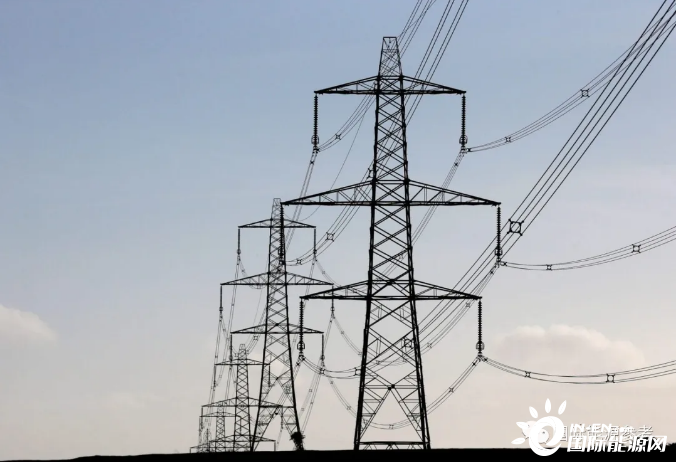European industry is complaining about soaring electricity prices
2021-10-12
Recently, the tightening of natural gas supply has led to the continuous rise of electricity prices in Europe. Under this background, European industries are facing difficulties such as high costs and profit compression. Some metal suppliers begin to consider reducing production or temporarily stopping production to cope with the rising costs.
 High electricity prices cause concern
High electricity prices cause concern
Data show that on October 5, Dutch TTF natural gas futures rose sharply, and the contract in November rose by about 22%, a record high, with an increase of nearly six times during the year. Affected by this, European electricity prices also jumped to a record high. According to the data of the European energy exchange, the benchmark price of electricity in Germany rose by 4.9% in October and 18% in November; Electricity prices in the UK rose 13.5% in November, a record high.
Mats Gustavsson, vice president of Energy Department of Sweden's Boliden mining company, said that the tight supply of natural gas and the continuous surge of electricity prices in Europe will have a lasting impact on the profits of mining and metal companies. "With the trend of carbon neutrality, mining and metal processing companies have begun to pursue reducing their carbon footprint and electrification of some production processes, so they need to use more electricity. However, soaring electricity prices will increase their operating costs and reduce their profit margins."
Eurometaux, the European Metals Industry Association, warned that soaring electricity costs could cause metal producers to move their business out of Europe. The Association urged European countries to take measures to further support the metal industry, including limiting the increase of emission quota prices and developing more flexible national assistance plans.
Guy Thiran, President of eurometaux, said: "if the electricity price is too expensive, it will hinder the process of industrial electrification in Europe, and it will be difficult to achieve the green goal in the end."
Increased industrial production costs
In the context of high electricity prices, relevant industry analysts believe that there may be more suspension of industrial activities across Europe.
BASF AG, Europe's largest chemical enterprise, said that although the company can achieve 80% self-sufficiency in electricity, it still can not completely get rid of the impact of record electricity prices. As the world's largest comprehensive chemical plant, the company's Ludwigshafen plant consumes up to 6 billion kwh of electricity every year.
In September, CF industries, an American fertilizer giant, was forced to close two British factories. Due to the deteriorating energy supply situation in Europe, CF industry did not know when to resume production. Cropenergies AG, one of Europe's largest ethanol producers, also said recently that despite the increase in revenue, rising energy costs still reduced corporate profits this year compared with the previous year.
Ogan Kose, managing director of Accenture, a consulting firm, said that the sharp rise in European energy prices across the board would hurt the industrial sector and be detrimental to the European economic recovery.
It is reported that British Steel Company, Britain's second-largest steel producer, warned that European electricity prices are "out of control". At this stage, British steelmakers need to pay double their electricity expenditure. In response to rising costs, the company has charged customers a surcharge of up to £ 30 per ton, and customers in related industries such as construction and automobile are expected to face price increases.
Paul Pearcy, coordinator of the British glass manufacturing chamber of Commerce, said that due to the problem of electricity expenditure, some companies producing windows are considering switching to other energy sources, and may even be forced to use energy with high environmental pollution to maintain production.
Yara international ASA, a Norwegian chemical company, said it would reduce ammonia production by about 40%. Joel Jackson, an analyst at BMO capital markets, a market research firm, said: "in the short term, European energy prices will continue to be high, and more nitrogen and chemical production facilities in Europe will be forced to suspend operations."
Metal suppliers cut production one after another
Reuters reported that Europe's record high electricity prices may also lead to a reduction in the production of key metal materials, such as silicon used to make solar panels, aluminum alloys and semiconductors for the automotive industry.
Eurometaux said that compared with other materials, the production of non-ferrous metals such as aluminum, copper, nickel and silicon consumes more electricity than any other material. Take aluminum as an example. For aluminum producers in Europe, the power cost accounts for about 80% of the total price of aluminum production per ton. Some British aluminum suppliers say they are considering stopping production or trying to avoid full load operation. "The surge in electricity costs has far exceeded the rebound in profits in the industrial metal market over the past year, leading to losses for some manufacturers," eurometaux said
RW silicium GmbH, a German metal silicon producer, has said that affected by the sharp rise in electricity prices in Europe, the company is considering stopping production to save profits, but it cannot stop production immediately due to the need to perform a long-term delivery contract.
Ferroglobe, a Spanish metal producer, said it was trying to spend this unusual period by reducing production at the peak of electricity prices and using its global asset base. Nyrstar, a zinc producer owned by commodity producer Trafigura group, said it would have to cut production at its factories in the Netherlands due to soaring electricity prices.
In addition, aurubis AG, Europe's largest copper company, also said that high energy costs have begun to compress the company's profits, and it is estimated that this trend will continue to deteriorate for the rest of this year.
Source: International Energy Reference

Data show that on October 5, Dutch TTF natural gas futures rose sharply, and the contract in November rose by about 22%, a record high, with an increase of nearly six times during the year. Affected by this, European electricity prices also jumped to a record high. According to the data of the European energy exchange, the benchmark price of electricity in Germany rose by 4.9% in October and 18% in November; Electricity prices in the UK rose 13.5% in November, a record high.
Mats Gustavsson, vice president of Energy Department of Sweden's Boliden mining company, said that the tight supply of natural gas and the continuous surge of electricity prices in Europe will have a lasting impact on the profits of mining and metal companies. "With the trend of carbon neutrality, mining and metal processing companies have begun to pursue reducing their carbon footprint and electrification of some production processes, so they need to use more electricity. However, soaring electricity prices will increase their operating costs and reduce their profit margins."
Eurometaux, the European Metals Industry Association, warned that soaring electricity costs could cause metal producers to move their business out of Europe. The Association urged European countries to take measures to further support the metal industry, including limiting the increase of emission quota prices and developing more flexible national assistance plans.
Guy Thiran, President of eurometaux, said: "if the electricity price is too expensive, it will hinder the process of industrial electrification in Europe, and it will be difficult to achieve the green goal in the end."
Increased industrial production costs
In the context of high electricity prices, relevant industry analysts believe that there may be more suspension of industrial activities across Europe.
BASF AG, Europe's largest chemical enterprise, said that although the company can achieve 80% self-sufficiency in electricity, it still can not completely get rid of the impact of record electricity prices. As the world's largest comprehensive chemical plant, the company's Ludwigshafen plant consumes up to 6 billion kwh of electricity every year.
In September, CF industries, an American fertilizer giant, was forced to close two British factories. Due to the deteriorating energy supply situation in Europe, CF industry did not know when to resume production. Cropenergies AG, one of Europe's largest ethanol producers, also said recently that despite the increase in revenue, rising energy costs still reduced corporate profits this year compared with the previous year.
Ogan Kose, managing director of Accenture, a consulting firm, said that the sharp rise in European energy prices across the board would hurt the industrial sector and be detrimental to the European economic recovery.
It is reported that British Steel Company, Britain's second-largest steel producer, warned that European electricity prices are "out of control". At this stage, British steelmakers need to pay double their electricity expenditure. In response to rising costs, the company has charged customers a surcharge of up to £ 30 per ton, and customers in related industries such as construction and automobile are expected to face price increases.
Paul Pearcy, coordinator of the British glass manufacturing chamber of Commerce, said that due to the problem of electricity expenditure, some companies producing windows are considering switching to other energy sources, and may even be forced to use energy with high environmental pollution to maintain production.
Yara international ASA, a Norwegian chemical company, said it would reduce ammonia production by about 40%. Joel Jackson, an analyst at BMO capital markets, a market research firm, said: "in the short term, European energy prices will continue to be high, and more nitrogen and chemical production facilities in Europe will be forced to suspend operations."
Metal suppliers cut production one after another
Reuters reported that Europe's record high electricity prices may also lead to a reduction in the production of key metal materials, such as silicon used to make solar panels, aluminum alloys and semiconductors for the automotive industry.
Eurometaux said that compared with other materials, the production of non-ferrous metals such as aluminum, copper, nickel and silicon consumes more electricity than any other material. Take aluminum as an example. For aluminum producers in Europe, the power cost accounts for about 80% of the total price of aluminum production per ton. Some British aluminum suppliers say they are considering stopping production or trying to avoid full load operation. "The surge in electricity costs has far exceeded the rebound in profits in the industrial metal market over the past year, leading to losses for some manufacturers," eurometaux said
RW silicium GmbH, a German metal silicon producer, has said that affected by the sharp rise in electricity prices in Europe, the company is considering stopping production to save profits, but it cannot stop production immediately due to the need to perform a long-term delivery contract.
Ferroglobe, a Spanish metal producer, said it was trying to spend this unusual period by reducing production at the peak of electricity prices and using its global asset base. Nyrstar, a zinc producer owned by commodity producer Trafigura group, said it would have to cut production at its factories in the Netherlands due to soaring electricity prices.
In addition, aurubis AG, Europe's largest copper company, also said that high energy costs have begun to compress the company's profits, and it is estimated that this trend will continue to deteriorate for the rest of this year.
Source: International Energy Reference










